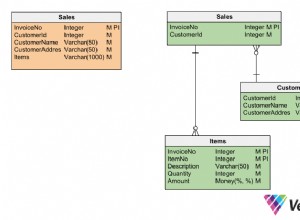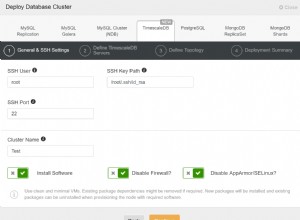Avec une table d'assistance définissant les limites "Dues" imposées sur la table source avec le total cumulé calculé, une intersection de chaque montant total cumulé avec les limites "Dues" peut être calculée :
With Receipt As ( --< Sample source table
Select * From (Values
('R1', 100),
('R2', 100),
('R3', 70),
('R4', 50),
('R5', 200)
) V (ReceiptNo, Amount)
), ReceiptWithTotal As ( --< Source table with Running Totals calculated
Select *,
SUM(Amount) Over (Order By ReceiptNo Rows Unbounded Preceding) - Amount As RunningTotalBefore,
SUM(Amount) Over (Order By ReceiptNo Rows Unbounded Preceding) As RunningTotalAfter
From Receipt
), Due As ( --< Helper table to define intervals (can be generated dynamically to cover any Total)
Select * From (Values
('D1', 0, 100),
('D2', 100, 200),
('D3', 200, 300),
('D4', 300, 400),
('D5', 400, 500),
('D6', 500, 600)
) V (DueNo, AmountLow, AmountHigh)
)
Select DueNo, ReceiptNo,
IIF(AmountHigh < RunningTotalAfter, AmountHigh, RunningTotalAfter) -
IIF(AmountLow > RunningTotalBefore, AmountLow, RunningTotalBefore) As Amount
From Due
Inner Join ReceiptWithTotal On NOT (RunningTotalAfter <= AmountLow OR RunningTotalBefore >= AmountHigh)
Veuillez noter :SUM(...) Over (Order By ... Rows Unbounded Preceding) et IIF(...) sont disponibles sur SQL Server 2012+ uniquement. La même chose peut être faite sur SQL Server 2008 via une sous-requête bien que beaucoup moins efficace :
With Receipt As ( --< Sample source table
Select * From (Values
('R1', 100),
('R2', 100),
('R3', 70),
('R4', 50),
('R5', 200)
) V (ReceiptNo, Amount)
), ReceiptWithTotal As ( --< Source table with Running Totals calculated
Select *, RunningTotalAfter - Amount As RunningTotalBefore
From (
Select *,
(Select SUM(Amount) From Receipt B Where B.ReceiptNo <= A.ReceiptNo) As RunningTotalAfter
From Receipt A
) A
), Due As ( --< Helper table to define intervals (can be generated dynamically to cover any Total)
Select * From (Values
('D1', 0, 100),
('D2', 100, 200),
('D3', 200, 300),
('D4', 300, 400),
('D5', 400, 500),
('D6', 500, 600)
) V (DueNo, AmountLow, AmountHigh)
)
Select DueNo, ReceiptNo,
CASE WHEN AmountHigh < RunningTotalAfter THEN AmountHigh ELSE RunningTotalAfter END -
CASE WHEN AmountLow > RunningTotalBefore THEN AmountLow ELSE RunningTotalBefore END As Amount
From Due
Inner Join ReceiptWithTotal On NOT (RunningTotalAfter <= AmountLow OR RunningTotalBefore >= AmountHigh)




